National Science Foundation Honors 6 BU Researchers with CAREER Awards
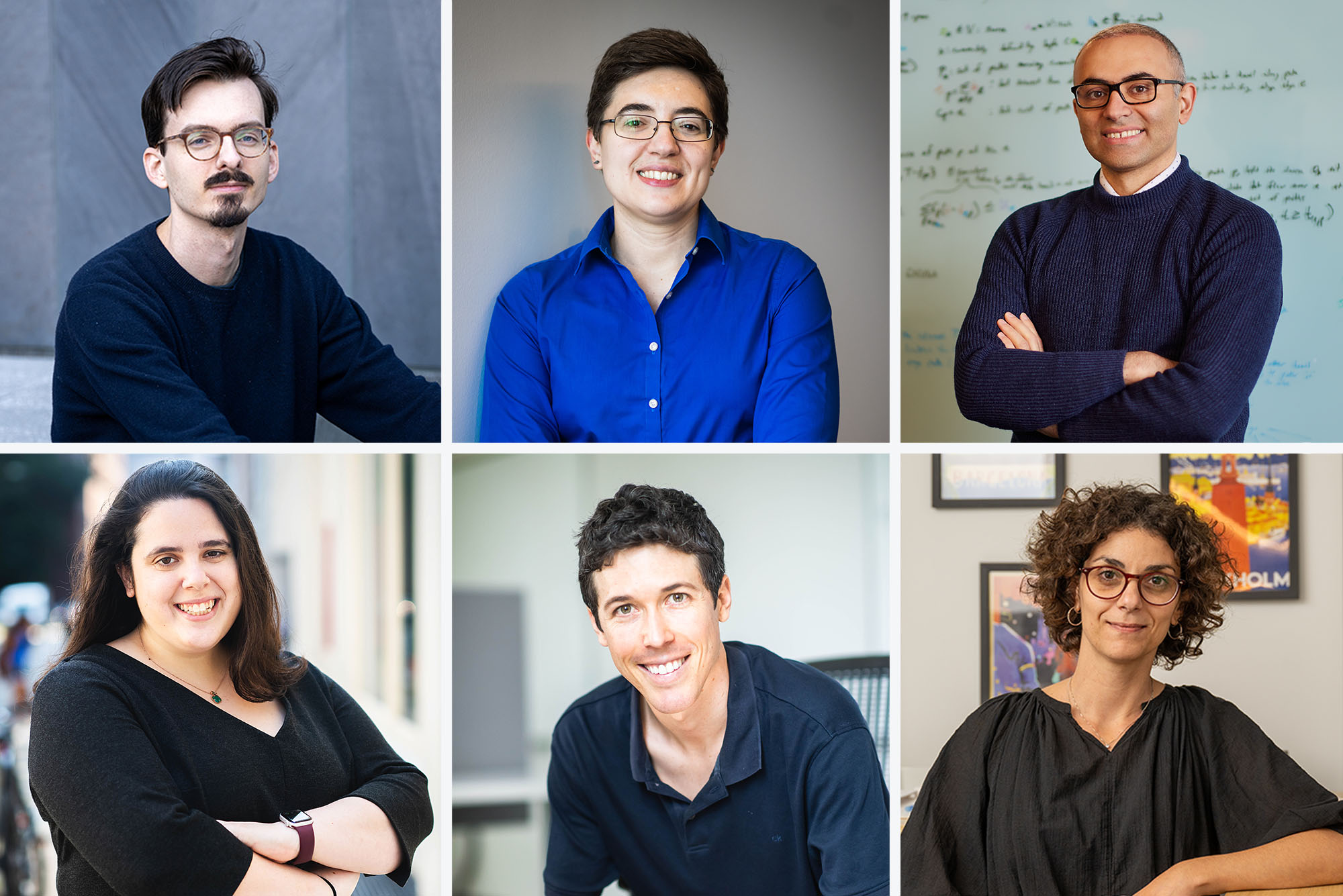
BU’s latest NSF CAREER award winners are (clockwise, from top left) Nathan Klein, Sabrina Neuman, Kayhan Batmanghelich, Vasiliki Kalavri, Eshed Ohn-Bar, and Kira Goldner. Photos by Jackie Ricciardi, Cydney Scott, and Dana J. Quigley
National Science Foundation Honors 6 BU Researchers with CAREER Awards
Recognition as rising stars from the NSF will support projects on safer robots, more trustworthy healthcare AI, and other computer science–infused innovations
Artificial intelligence (AI) could make us all healthier: it can help spot infectious diseases, treat high blood pressure, detect Alzheimer’s disease. But a majority of Americans still don’t trust AI—and are more concerned than excited about its potential. In part, says Boston University electrical and computer engineer Kayhan Batmanghelich, that’s because most AI programs are black boxes—even the experts don’t know what’s inside. Batmanghelich just launched a new project to make healthcare AI tools that are more transparent and, he hopes, more effective, reliable, and trustworthy.
He is one of six Boston University researchers to be awarded a Faculty Early Career Development Program (CAREER) award from the National Science Foundation (NSF) to propel their research. Although the awards are given to researchers from a broad range of fields, the BU winners all have a computer science–related focus, from programming safer robots to making assistive AI more responsive to people with low vision.
The awards recognize researchers with the “potential to serve as academic role models in research and education and to lead advances in the mission of their department or organization,” according to the NSF. Honorees are selected based on the strength of their innovative research and community service. Each of the BU winners will use the award, which comes with funding, to drive their own work, as well as to support student researchers in their labs.
“These awards reflect the extraordinarily talented and creative faculty that Boston University is able to recruit: researchers with a deep commitment to education and mentoring that complement their high-impact research programs,” says Kenneth Lutchen, BU’s vice president and associate provost for research. “From advancing AI for healthcare and accessibility to designing more equitable systems for public resource allocation, each of these projects reflects the impact-driven scholarship that defines our research community.”
The Brink asked BU’s latest winners to share what they’re working on and the potential societal impact of their research.
Trustworthy Medical AI
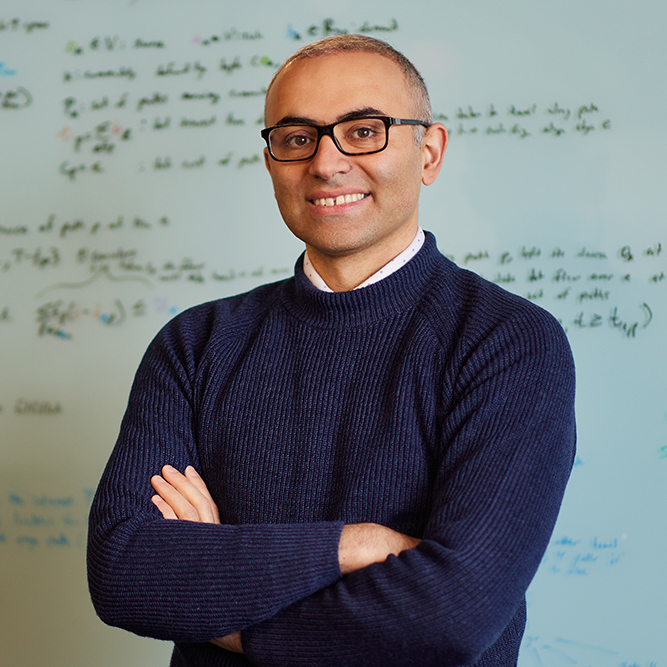
When it comes to diagnosing tough medical cases, AI can give clinicians a helping hand. But, says Batmanghelich, these powerful programs “often operate as black boxes—systems that make predictions without revealing how or why.” That can make results hard to interpret and trust—and problems difficult to fix. A College of Engineering assistant professor of electrical and computer engineering, Batmanghelich will, he says, “develop methods that transform these black box systems into human-understandable forms, such as logical rules or simple programs.” A second goal is to use AI to audit AI—leveraging AI’s reasoning abilities to generate user-friendly translations of other systems. Batmanghelich will focus on dissecting AI models for breast cancer and chronic lung disease diagnosis.
“In the long term, this work could lead to more equitable, transparent, and trustworthy AI systems in medicine,” he says, “and help establish a foundation for explainable AI models across other high-impact domains.”
Fairer Allocation of Social Services
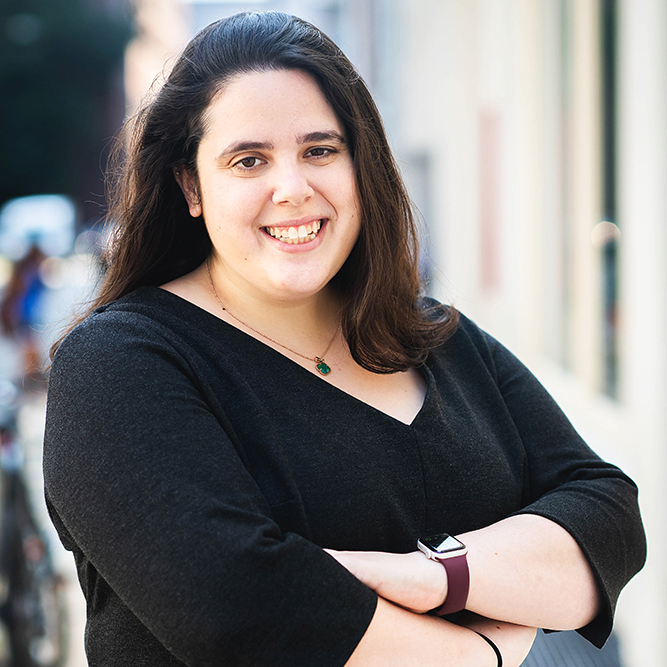
No matter where you are in the world, signing up for a free social service usually involves two things: paperwork and long waits. Kira Goldner, a Faculty of Computing & Data Sciences assistant professor, studies the math behind what she calls these consumer “ordeals” with the goal of finding more efficient ways of allocating resources and services.
“While these ordeals align incentives and ration demand, they impose a significant cost to consumers,” says Goldner. And, unlike a financial payment, those ordeal costs don’t even benefit the organizations running the system. Goldner’s research digs into the practical trade-offs between rationing services—without any legwork by consumers—or making consumers prove their level of need through these ordeals. “Society will benefit from simple, explainable mechanisms with provable guarantees and guiding principles as to when to use which in practice,” says Goldner. The research will also, she says, help reduce inequities in social service provision.
Using Data to Improve Society
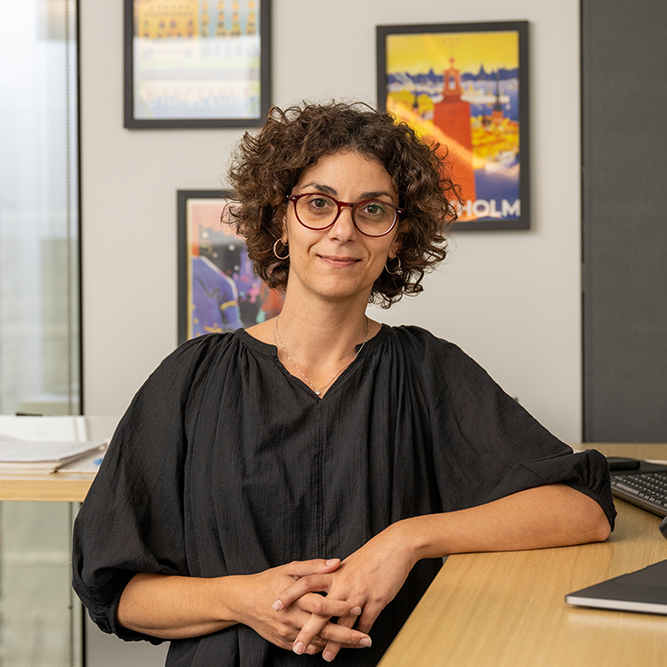
In an era when even the humble refrigerator can be infused with AI and connected to an app, our lives generate a constant stream of data. Vasiliki Kalavri develops software systems that allow all that data—collected from wearables and phones, and cars and household gadgets—to be analyzed efficiently, even by nonexperts. “We expect the results of this project to impact society at large by enabling novel applications in areas like smart cities, digital health, continuous Earth observation, and disease surveillance,” says Kalavri, a College of Arts & Sciences assistant professor of computer science. “My goal is to make data analytics systems efficient, scalable, secure, easy to use, and accessible to nonexperts, scientists, and small organizations.”
In addition to planning educational activities for scientists interested in doing more with data, Kalavri will be working with the city of Boston and the CDS Duan Family Spark! Initiative to develop summer analytics internships for students.
New Approach to the Hardest Problems
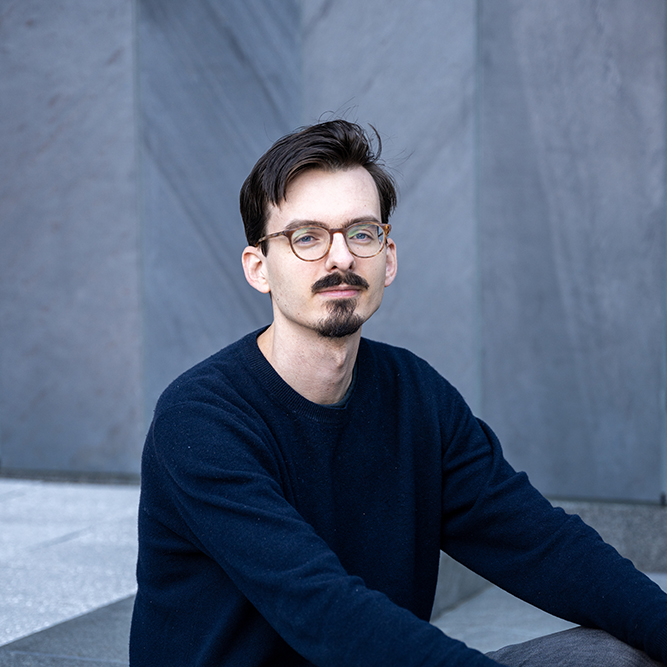
The traveling salesperson problem is a classic conundrum to challenge computer scientists: they’re given a bunch of cities and told to plot the shortest route for a salesperson to follow that ensures they visit every city just once and return to the original city. It’s a type of test known as a fundamental NP-hard graph problem. “It is conjectured that NP-hard problems cannot be solved efficiently,” says Nathan Klein, a CAS assistant professor of computer science, “so we will study approximation algorithms.” These algorithms are faster and, even if they don’t get the best solution, “can be shown to always get something pretty close,” Klein says.
His research aims to find out just how close to optimal an approximation algorithm can get. The work he and his team do to create the algorithm may have implications beyond this particular project, says Klein, as well as real-world applications. “Approximation algorithms are very useful—we need to solve NP-hard problems all the time,” he says. “The traveling salesperson problem, for example, is used in many applications, from routing delivery trucks to scheduling airplanes to designing circuit boards.”
Safer Robots
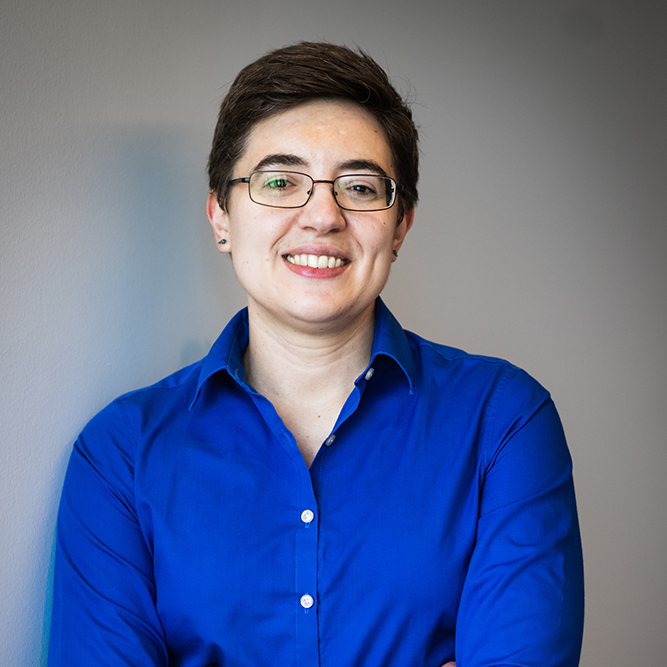
By the time you retire to a comfortable assisted living facility in the not-so-distant future, some of your daily care might come courtesy of a robot. Sabrina Neuman wants to ensure that the autonomous helpers of the future—whether in the home, factories, or health facilities—can safely interact with people.
“The goal of my project is to use real-world information about robots, like the size and shape of their limbs, to automatically design customized computers that help plan out the motion of these robots quickly and efficiently,” says Neuman, a CAS assistant professor of computer science who designs faster and more energy efficient computing systems. “I am particularly focused on robotics applications because of their heavy computational demands and potential to improve the well-being of individuals in society.”
Accessible AI for People with Impaired Vision
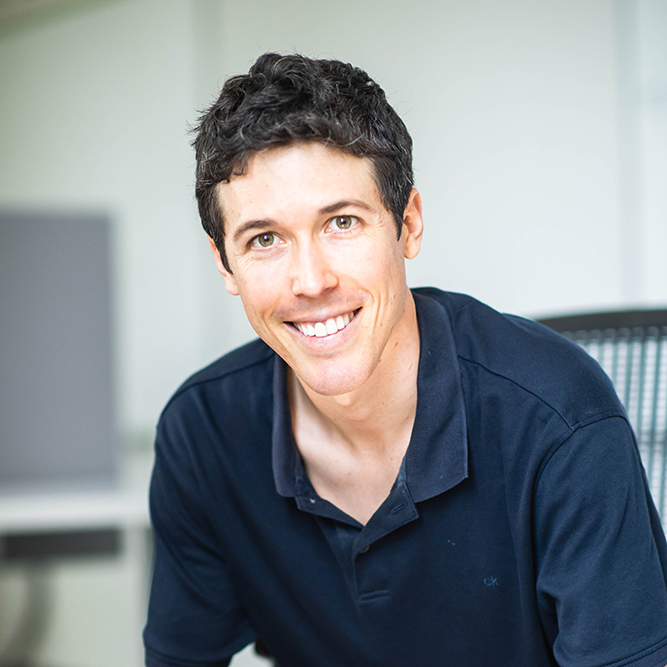
For most of us, a lousy piece of advice from our AI-powered navigation assistant on our smartphones—a bad traffic direction, an unexpectedly closed road—is just a minor irritant. But for people with low vision, a voice telling you to cross left when it means right can be life-threatening. According to Eshed Ohn-Bar, AI models designed to help people who are blind or visually impaired can be full of flaws: they can misinterpret directional information, give inaccurate descriptions, and ignore feedback. He plans to change that with a project to help create AI systems that better incorporate the needs and experiences of their users, beginning with people with impaired vision. Ohn-Bar and his team will build a dataset that features real users’ AI interactions and preferences, then create an AI program that learns directly from people’s feedback.
“I envision this work enabling people with disabilities to live more independently and confidently,” says Ohn-Bar, an ENG assistant professor of electrical and computer engineering. “The advances we make can set new standards for AI that adapts to individual needs, potentially influencing everything from smartphone assistants to smart city systems. The techniques developed here could spur a broader shift toward AI that treats accessibility and personalization as fundamental features, benefiting everyone.”
A.J. Kleber contributed reporting to this article.
